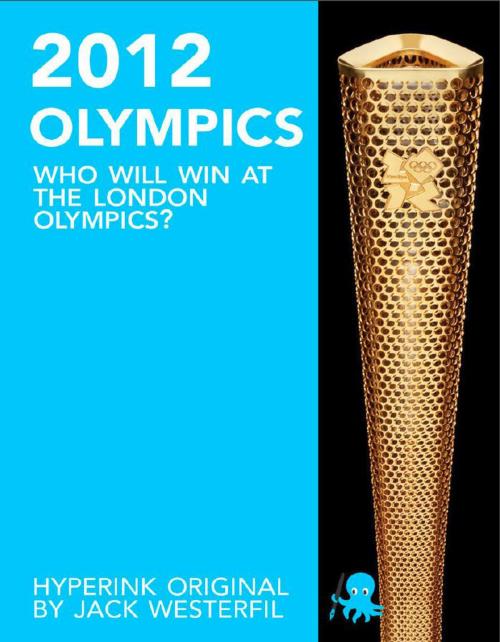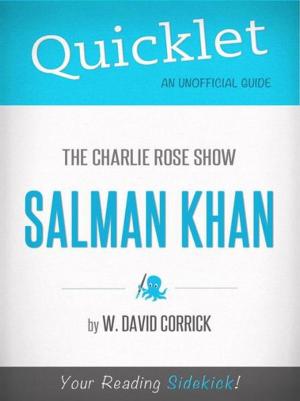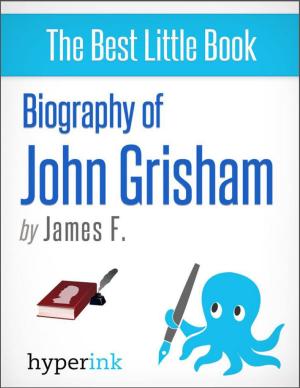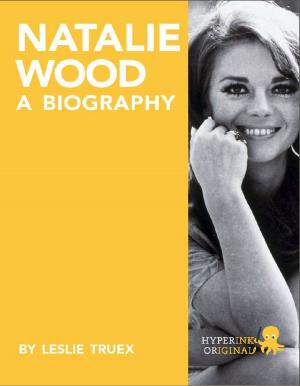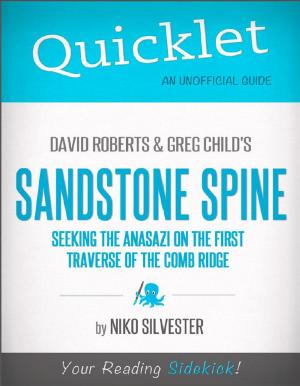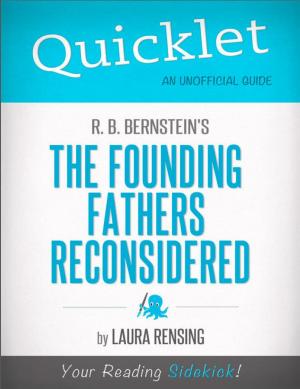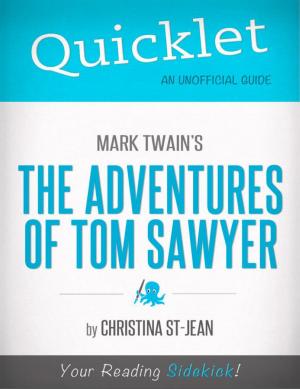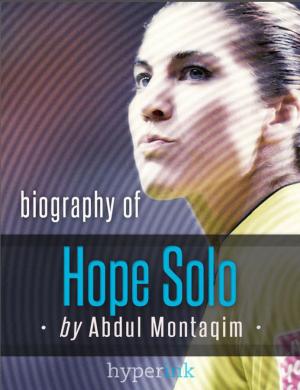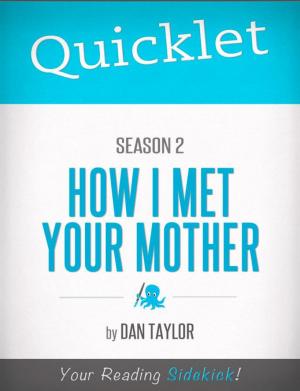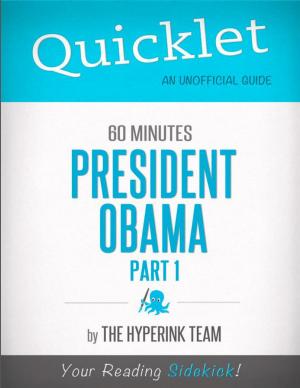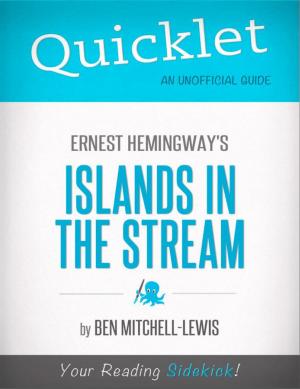The 2012 Olympics: Who Will Win at the London Olympics?
Nonfiction, Food & Drink, Social & Cultural Studies, Political Science| Author: | Jack Westerfil | ISBN: | 9781614646501 |
| Publisher: | Hyperink | Publication: | July 30, 2012 |
| Imprint: | Hyperink | Language: | English |
| Author: | Jack Westerfil |
| ISBN: | 9781614646501 |
| Publisher: | Hyperink |
| Publication: | July 30, 2012 |
| Imprint: | Hyperink |
| Language: | English |
ABOUT THE BOOK
I am not an athletically inclined person, and my own understanding of what the Olympic movement is about didn’t happen until 2009 when I was part of a group of several hundred American entrepreneurs selected to be a part of British Airways’ Face to Face program. All members of the group had been given a free round trip ticket to travel anywhere in the world. The objective was to make it possible for us to meet face to face with other companies around the globe, and score business opportunities that we would not ordinarily have access to.
The day of our arrival in London, was a whirlwind of activities that included networking sessions and dinner at the Radisson Edwardian Heathrow hotel. Sir Clive Ronald Woodward, the British Olympic Association's Director of Elite Performance gave a presentation that resonated with many in the audience. He talked about sports principles as they apply to life and business: How there are certain qualities like “teachability” that will determine whether or not you will become an elite performer in any field. When I returned to my home in Atlanta, I challenged myself to expand the reach of my business, E-graphX Omnimedia. I applied as a supplier of writing and design services to bid on Olympic contracts on CompeteFor.com, the UK based portal for researching and bidding on contracts for the 2012 Olympics. My application was accepted.
Being a part of CompeteFor gave me a dynamic perspective regarding elite performance, competition and the Olympic movement that I did not have before. I witnessed the precision and attention to detail carried out by the London Olympics machinery, which asked relevant, holistic questions about workplace diversity, balanced finances, quality assurance, and fair hiring practices. Vendors from all over the world with specialities that varied from fine art to web design and waste management gathered at the cyber market place to put the name of their company in the hat for the 2012 Olympics contracts. The process of building the London Olympics was an exercise in elite performance in competition. Through democratization of the building process, the city of London exemplified fair and open competition, which is a major aspect of the Olympic spirit.
The Olympic torch sheds a light that teaches the principles of peace and racial equality. This aspect was highlighted in the recent death of Olympic pioneer LeRoy T. Walker, whom the New York Times described as “first African-American to coach a United States men’s Olympic track team and to serve as the president of the United States Olympic Committee.” One of the greatest Olympic “teachabiity” moments occurred during the 1936 Olympics in Nazi Germany. Thirteen African American athletes won medals.
EXCERPT FROM THE BOOK
The Kuwait chapter was suspended in 2010. The International Sports Federations administer one or more sports on an international level. The IFs are responsible for the integrity of their sport(s) internationally.How Olympic Host Countries Are Chosen
There are three basic steps to becoming a host city for the Olympics:
1. The country that wants to host the Olympics has to first submit its name to the IOC and become an “applicant city.”
2. Over a period of 10 months, the IOC examines the applicant city to see if it is big enough to handle the expansive influx of patrons and create the kind of infrastructure that will allow this international event to proceed smoothly and safely. The residents of the city must be able to support the costs of an Olympic venture. The city has to maintain a positive profile. A city cannot be a hot bed for terrorists and expect to win an Olympic bid. If the city can meet these criteria, it then progresses to the stage of being a “candidate city.”
...buy the book to continue reading!
ABOUT THE BOOK
I am not an athletically inclined person, and my own understanding of what the Olympic movement is about didn’t happen until 2009 when I was part of a group of several hundred American entrepreneurs selected to be a part of British Airways’ Face to Face program. All members of the group had been given a free round trip ticket to travel anywhere in the world. The objective was to make it possible for us to meet face to face with other companies around the globe, and score business opportunities that we would not ordinarily have access to.
The day of our arrival in London, was a whirlwind of activities that included networking sessions and dinner at the Radisson Edwardian Heathrow hotel. Sir Clive Ronald Woodward, the British Olympic Association's Director of Elite Performance gave a presentation that resonated with many in the audience. He talked about sports principles as they apply to life and business: How there are certain qualities like “teachability” that will determine whether or not you will become an elite performer in any field. When I returned to my home in Atlanta, I challenged myself to expand the reach of my business, E-graphX Omnimedia. I applied as a supplier of writing and design services to bid on Olympic contracts on CompeteFor.com, the UK based portal for researching and bidding on contracts for the 2012 Olympics. My application was accepted.
Being a part of CompeteFor gave me a dynamic perspective regarding elite performance, competition and the Olympic movement that I did not have before. I witnessed the precision and attention to detail carried out by the London Olympics machinery, which asked relevant, holistic questions about workplace diversity, balanced finances, quality assurance, and fair hiring practices. Vendors from all over the world with specialities that varied from fine art to web design and waste management gathered at the cyber market place to put the name of their company in the hat for the 2012 Olympics contracts. The process of building the London Olympics was an exercise in elite performance in competition. Through democratization of the building process, the city of London exemplified fair and open competition, which is a major aspect of the Olympic spirit.
The Olympic torch sheds a light that teaches the principles of peace and racial equality. This aspect was highlighted in the recent death of Olympic pioneer LeRoy T. Walker, whom the New York Times described as “first African-American to coach a United States men’s Olympic track team and to serve as the president of the United States Olympic Committee.” One of the greatest Olympic “teachabiity” moments occurred during the 1936 Olympics in Nazi Germany. Thirteen African American athletes won medals.
EXCERPT FROM THE BOOK
The Kuwait chapter was suspended in 2010. The International Sports Federations administer one or more sports on an international level. The IFs are responsible for the integrity of their sport(s) internationally.How Olympic Host Countries Are Chosen
There are three basic steps to becoming a host city for the Olympics:
1. The country that wants to host the Olympics has to first submit its name to the IOC and become an “applicant city.”
2. Over a period of 10 months, the IOC examines the applicant city to see if it is big enough to handle the expansive influx of patrons and create the kind of infrastructure that will allow this international event to proceed smoothly and safely. The residents of the city must be able to support the costs of an Olympic venture. The city has to maintain a positive profile. A city cannot be a hot bed for terrorists and expect to win an Olympic bid. If the city can meet these criteria, it then progresses to the stage of being a “candidate city.”
...buy the book to continue reading!
